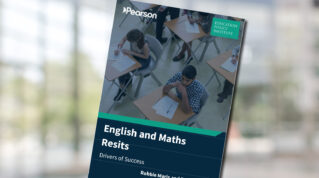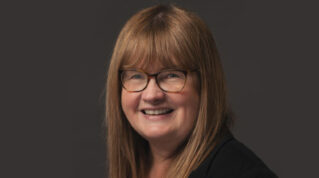Colleges Week comes soon after our sector’s busy enrolment period. This celebration of our sector, just as tens of thousands of students settle into their new learning environments, got me thinking about how schools and colleges can work better together for them.
While A levels are most people’s first choice, the fact is that 16-year-olds (and their parents) have a multitude of options, whether that’s at school, college or elsewhere.
They can study a plethora of vocational and technical qualifications from BTECs to T levels. They can access entry-level, level 1 or level 2 programmes. They can even get on- and off-the-job training through apprenticeships. And if they need to, they can resit their GCSEs.
As a college, we prioritise individual choice with a focus on careers not courses, offering a breadth of choice to see them onto the right qualification for that career pathway. In addition, we offer a wealth of enrichment activities and career opportunities including health and wellbeing support, trips, guest speakers, employability workshops, career-ready programmes, mentoring, and credible work placements and internships with hundreds of London employers.
All this boosts students’ skills and experience and gives them a greater insight into their career options for successful progression and positive destinations.
At the same time, we know many young people want to stay at school. If that’s the right choice for them, that’s great. Contrary to the perverse incentives inherent in the funding of 16-18 education that often pit us against each other, we are not in competition with secondary schools.
Instead, we want to be seen as a trusted partner, and two recent examples of partnership work between our college and local schools clearly demonstrate the benefits that working closely together can bring to some students.
We are not in competition with secondary schools
We’re working with an ‘Outstanding’ school in Islington to offer their pupils more A level choices. Any school would struggle to offer the 33 subjects that we do, so we are collaborating with them to set up a satellite provision which would enable their students to take a combination of A levels, with teaching delivery from both the school and our college.
And at another local school, also in Islington, we’re looking to restart a great scheme from just before the pandemic. Working closely with the school, we developed alternative provision for a group of year 10 and 11 pupils, who were disengaging and in danger of not taking GCSEs at all.
The pupils stayed at the school for their English and maths GCSEs and, depending on their interests, came to one of the colleges in our group for a vocational level 1 or 2 qualification. Some pupils went to Westminster Kingsway College to study hospitality; a group went to CONEL in Tottenham for construction, and others came to City and Islington to study animal science or hair and beauty.
Helping these pupils onto level 1 and 2 courses with us gave them a taste of life at college and helped them broaden both their horizons and career options. Most of the students subsequently stayed with us and progressed to their next level of learning at college, familiar with the environment and with successes already under their belts.
What these great partnerships have in common is that both were founded on good personal relationships. In both cases, I or a senior colleague and the deputy head at the school got to know each other and built mutual trust, also working cohesively with the local authority.
School staff have visited our colleges and we have been into the schools to speak to staff, pupils and their parents. It has taken time, but we’ve seen the benefits in better outcomes for students.
Schools and colleges all want the same thing – to ensure the very best outcomes for all their pupils and students. While neither school nor college will be the best option for every 16-year-old, by working together as partners, we can help more students find the course that’s right for them and the positive career options that lie ahead.
This Colleges Week, we should all remember that we owe it to every 16 year-old to do no less.

















Your thoughts